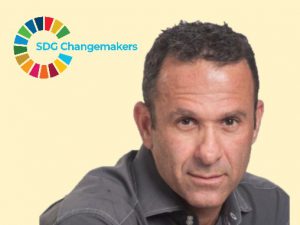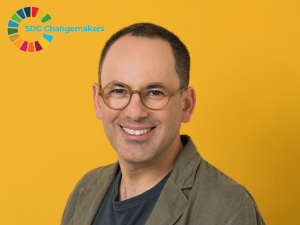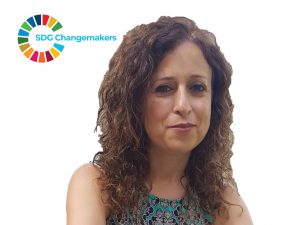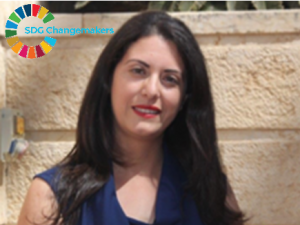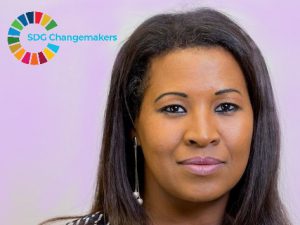CEO, Social Finance Israel
SII: Please briefly describe your work
YN: We work to create measurable change in people´s lives by deploying innovative financing tools to solve social problems, all while developing the Impact Investing sector in Israel.
Established in 2013, SFI is a social enterprise that promotes the flow of capital towards solving social issues in Israel, through the use of innovative financing tools. As the first and only social investment intermediary in Israel, SFI is developing the Impact Investing sector with the ultimate goal of positively impacting the lives of citizens nationwide.
SFI is the leading developer of Social Impact Bonds (SIBs) in Israel, having launched Israel´s first five SIBs. The first and fourth SIBs aim to reduce the dropout rate among computer science & IT students in higher education. The second aims to prevent the onset of type 2 diabetes among pre-diabetics, the third aims to enhance educational attainments in mathematics for Bedouin students in the Negev (details below – SII). Finally ,our fifth is focused on reducing loneliness among the elderly.
Behind a team of excellent professionals from a variety of social and professional backgrounds, SFI is bolstered by a board of directors comprising vastly experienced public leaders, purpose-driven investors, foundations, entrepreneurs, and industry experts. SFI partners with organizations in Israel and abroad which strive to achieve measurable, positive social outcomes alongside financial returns. SFI also works closely with the Israeli National Advisory Board, which consists of senior executives from the public, financial and social sectors.
SII: Please characterize your interaction with government, civil society and the private sector
YN: In Israel, impact investments are also drawing the attention of the business sector; institutional investors are now investing in projects to reduce social gaps. We also see more financial entities turning toward financial tools that consider social value and are formulating various strategies for impact investments. More recently, we are witnessing the establishment of investment funds where all investments are only in projects with social- or environmental-measured (and managed) impact.
In order to have a truly sophisticated impact market in Israel, the government and the public sector must adopt and assimilate these tools. First, regulatory reference is required to accurately define what data companies should publish in order to measure their impact. Aligning a regulatory line will increase trust among the various actors, avoid fraud and attract more parties to make social investments in a safe environment. Beyond that, Israel – like Japan and the UK – needs to create a wholesale fund financed with unclaimed assets [such as lost bank accounts] with the aim of investments in projects that have measurable social results.
These steps and others, like tax incentives for impact investors, are required in order to bring Israel in line with the world’s leading countries and financial organizations that understood the economic and social potential incorporated in impact investments. The innovative models ensure that the financial investment yields not only financial returns but also maximum social outcomes and generates knowledge in solving social problems that can be replicated in other cases and countries.
SII: How has your work been affected by the COVID-19 crisis?
YN: Within the first week of the crisis, Social Finance Israel (SFI) issued an urgent call offering free hours of advisory support to non-profits. Consulting topics included fundraising, management practices in times of crisis, and helping organizations integrate mixed revenue models. Forty organizations applied, of which 10 have so far received consulting support (we plan to assist the other 30 with the backing of a major Israeli bank).
SFI’s R&D team has also produced an economic model for the Ministry of Finance’s Budget Committee assessing the impact of the economic closure brought on by COVID-19. The model examines the effects of COVID-19 on 10 vulnerable groups, including: the elderly, victims of domestic violence, single parents, as well as at-risk youth. Findings were presented to government representatives and are informing discussions on how and when to ease restrictions.
We also released a Q1 Impact Update which, among other things, details how the performance management team has worked to operationally adapt projects considering the virus crisis.
Our efforts on behalf of low-income, vulnerable and at-risk groups – the groups most affected by this crisis – are bolstered by ongoing partnerships with Israeli government entities, philanthropic foundations, entrepreneurs, social enterprises and service providers, NGOs, and committed impact investors.
Furthermore, SFI published a paper with 5 Impact Investment Strategies to act on in response to COVID-19.
SII: Name three principle values that you associate with your work?
YN: 1. Social justice
2. Reduce inequality
3. SDG 17: Strengthen the means of implementation and revitalize the global partnership for sustainable development
SII: What particularly motivates you to make a difference?
YN: Israel faces many social challenges; there are numerous non-profits trying to deal with these problems, all vying for the same limited resources available. Being able to introduce new financial tools, new players and measurement tools into the third sector is very exciting. Seeing the gradual shift from traditional philanthropy to outcomes-based philanthropy is a significant paradigm change.
SII: What positive impact do you see emerging through your activity?
YN: We are leading a paradigm shift and a switch to the concept of social investments, in an effort to mobilize the private sector in favor of increased engagement in priority social issues through tools they recognize from the investment world. We believe that this approach, which is proving successful elsewhere around the world, will be essential in boosting the magnitude of investment in social issues in Israel. There is no doubt in my mind that the coming years will see more and more SIBs being issued in Israel on a variety of issues, and that these will draw economic planning, new capital and advanced management tools toward the social arena in Israel.
SII: What is your favorite project?
YN: Every project that we have initiated has been groundbreaking in its field. I have high hopes for all our projects; I envision each project to be scaled up and continued by the relevant entities to encompass more beneficiaries, and hope that they will serve as a model within and outside of Israel.
If I had to choose one project, it would be the Preventing type 2 diabetes SIB. Since the single most effective form of preventing type 2 diabetes is to implement lifestyle modifications, SFI set out to make a change via a five-year intervention program centered on personalized lifestyle modifications. As one of the world´s first SIB in preventative health care, this one is attracting global interest.
That’s not our only worthy project, of course. As part of the government’s five-year socio-economic development plan for Bedouin communities in southern Israel, in the past year we have partnered with the Ministry of Education to launch an SIB designed to increase the number of students matriculating with higher mathematics levels in the town of Rahat (one of Israel’s more disadvantaged cities; its current percentage at these levels is 15%, while in the general population the figure stands at 35%).
This SIB will serve as a pilot to inform future projects of the Ministry of Education and will enable replication of successful intervention components among other vulnerable populations. Strengthening educational outcomes in Rahat will directly impact the reduction of social gaps in Israel, consequently resulting in growth for the Israeli economy.
More about Yaron Neudorfer
Before establishing Social Finance Israel, Yaron previously served for seven years as CFO of The Jewish Agency. Prior to joining the Jewish Agency, for 12 years he filled in various roles in the Israeli Ministry of Finance, overseeing projects within social areas such as healthcare and education.
In his final position at the Ministry of Finance, Yaron was stationed in New York City, representing the Israeli Government vis-à-vis credit rating agencies and implementing the borrowing program of the State of Israel in the Western hemisphere.
Yaron holds a bachelor’s degree in Accounting and Economics from The Hebrew University in Jerusalem, and a master’s degree in Public Administration from Harvard University Kennedy School of Government.


